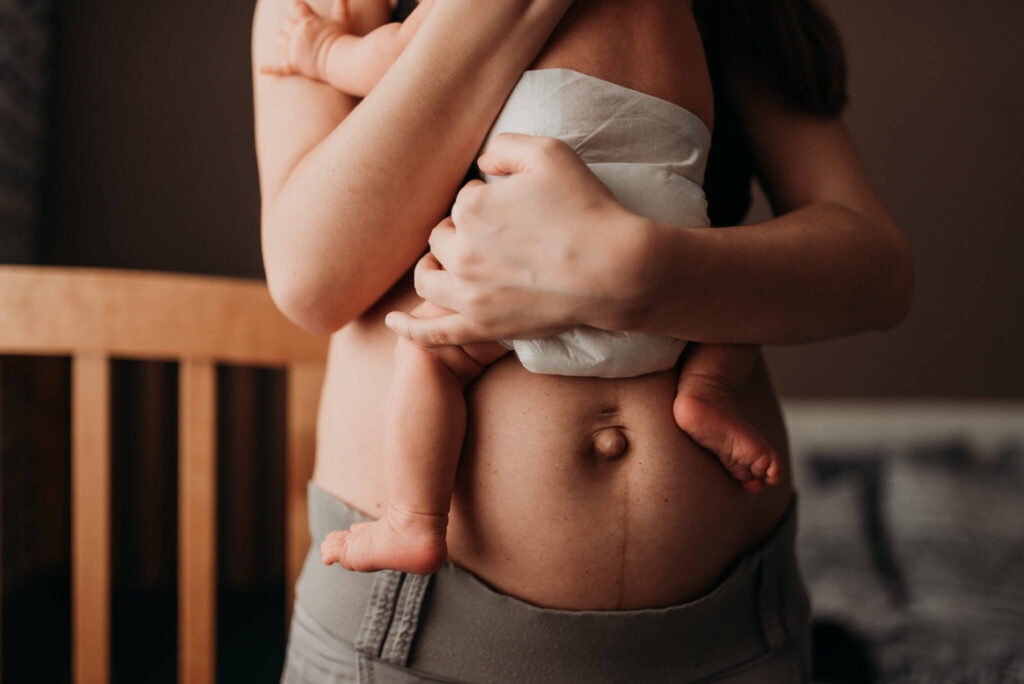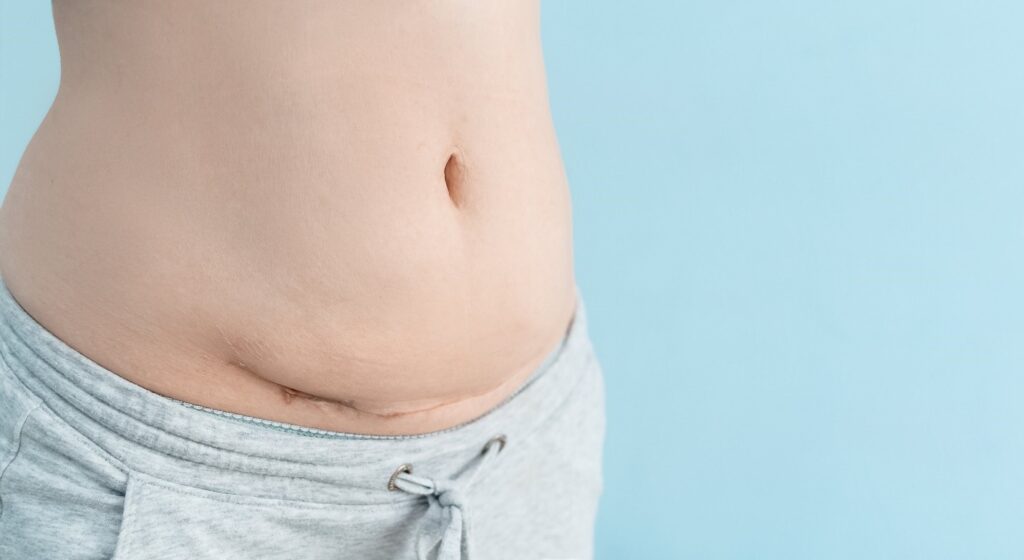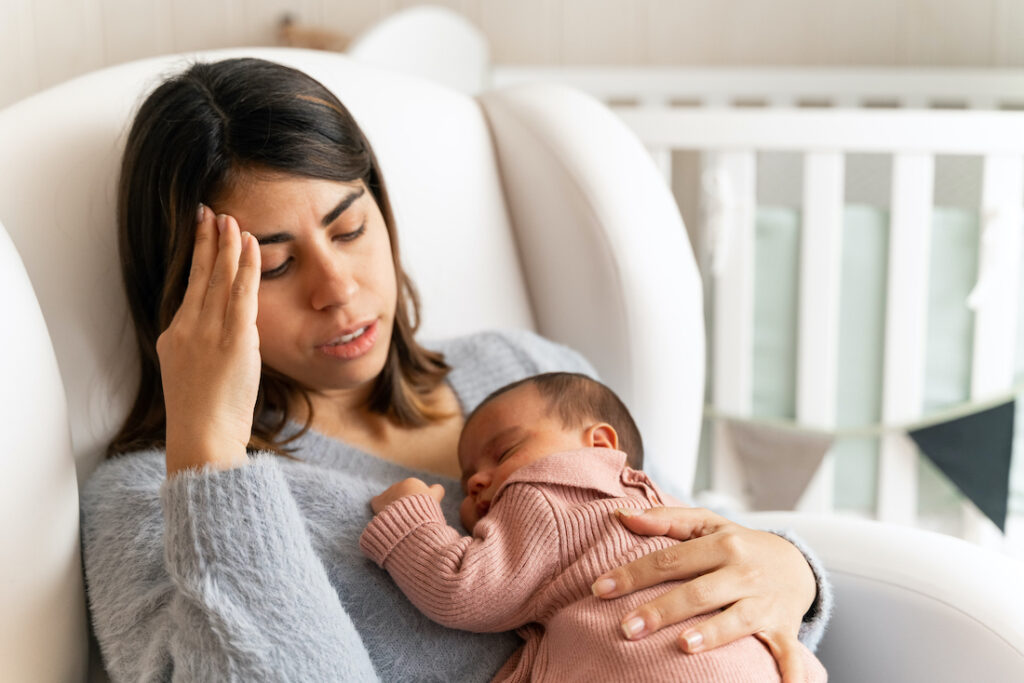The postpartum phase is the end of the pregnancy journey but the start of a new journey called motherhood.
What Is Postpartum?
The word postpartum has Latin origins, ‘post’ means after, and ‘partum’ means to give birth. The word literally means after giving birth. Postpartum is a phase of your life that you go through after you have given birth to your child.
This is a time when you need utmost care and need to look after yourself as much as the baby. This is easier said than done because looking after your newborn baby, especially if you are a first-time mum, is a daunting task.
It drains, exhausts and frustrates you to the core. So much so that sometimes you go days without even brushing your hair. Yes, taking care of your baby is not easy, especially if you don’t have extra help from someone.

Your postpartum phase generally lasts 6-8 weeks because that is the time your body needs to come back to its normal state. After the initial 6-8 weeks have passed, you will notice that you and the baby are forming a routine and things get settled by this time.
The reason why the postpartum phase is significant is because this is a phase of learning. You learn how to handle the baby, how to take care of them, to understand what they are trying to convey to you, and respond to their needs while trying to pick yourself back up and come back to normalcy.
Some Details About The Postpartum Phase
The postpartum phase is unlike any trimester of pregnancy, be it the first trimester, second trimester, or third trimester. The major difference is that when you were pregnant and had any inconvenience, you could take some time off for yourself, but now you can’t because you have your baby with you.
Some basic details about the postpartum phase are:
- The postpartum phase generally lasts 6-8 weeks.
- If you had a vaginal delivery, you might bleed for around 40 days (more or less) because there are a few blood vessels that take time to close. The bleeding should lessen after the first week.
- If you had a C-section, you might not bleed for 40 days, the bleeding usually ends earlier.
- You might feel lethargic or tired and that is totally OK because you just gave birth and it is one of the most difficult things in the world.
- Your baby will keep you up at night, that’s what babies do. So gear up and be prepared.
- Postpartum care is vital for every woman.
What Is Postpartum Care?
Postpartum care is to look after yourself after you have given birth. The postnatal period is a difficult time in a woman’s life. You have just given birth which in itself is painful, you might have lingering pain if you’ve had a C-section or you had a perineal tear during vaginal delivery.
If you do not take care of yourself during this period, you are going to put yourself in harm’s way.
How to Take Care of Yourself During Postpartum?
Taking care of yourself during postpartum is no rocket science. It is just to take care of your body and mental health so that you feel fresh and can take care of your child in the best way possible. Some of the things you can do are:
Taking Care of Your Stitches
If you’ve had a C-section or a perineal tear, make sure you take care of your stitches as they can get infected and worsen the situation. Your healthcare provider will guide you on how to look after the stitches.

Nowadays most stitches are dissolvable so you won’t have to do much but sitting in a warm bath with recommended bath salts is helpful for perineal stitches. C-section mamas are recommended to take baths and clean their stitches with warm water so that they don’t fester.
If you live in a humid or warm area, make sure your area with stitches doesn’t get sweaty as that also adversely affects the sutures.
If good care is taken, your stitches will heal in no time and the pain will lessen considerably.
Dealing With Uterus Contraction
And you thought your nightmare with the uterus was over? Nope. After you have given birth, you will have contractions for a few days, they will be sporadic, and happen on and off. Unlike labor pains, they will not have a pattern.
Uterus contractions after giving birth are usually called afterpains and they happen because the uterus starts to contract and become smaller and it compresses the blood vessels to lessen the bleeding. These pains are sudden and it will feel as if something is tightening inside your tummy. These usually happen when you are breastfeeding.
The best way to deal with uterus contraction is to wear a pregnancy belly band, as those provide warm compression to the abdomen, Belly Bandit is a great postpartum belly band that helps with compression. You can take pain relievers to lessen the pain and when you feel you are having a contraction, lie down and take deep breaths. The pain will go away on its own in a couple of minutes.
Do Things That Make You Feel Good
Like getting dressed up? Putting on makeup? Getting highlights? Do all of it. Do not compromise when it comes to looking good after having a baby because you deserve it. Do what makes you happy. Take some time out every day and give yourself some ‘me’ time even if that means taking a nice warm bath.

The postpartum phase can get to you sometimes and you want to conquer it.
Get Extra Help
Get all the extra help that you can during this time. If you have friends, family, or anyone who is willing to give you a helping hand, don’t be shy. Take it because you need all the help you can get. If people want to bring home-cooked food for you, don’t be hesitant. Ask your partner to help with the baby chores like changing a diaper or putting the baby to sleep.
If you can hire house help to give you a helping hand, do that. If you think you can manage it in your monthly budget then you should definitely go for it because the more help, the merrier.
Things to Look Out for During Postpartum
Postpartum is usually a phase where your motherly instincts take over and you are engulfed deeply with the baby. On one hand, you are over the moon to have your baby finally in your arms, on the other hand, you might be feeling something called the ‘baby blues’.
Baby blues or in other words, postpartum depression, is a state of mind where you feel depressed and sad, and this is because of the changing hormones, but your changing body, lack of sleep, and added workload also have an impact. You might feel like you want to cry all the time, especially when the baby is throwing a tantrum or you start getting angry.

Postpartum depression is quite common and happens to nearly everyone but if you feel that it is taking over you and you can’t seem to get out of this state of mind, then it would be best to talk to your healthcare provider who will help you come out of it.
Conclusion
Postpartum is a difficult phase, one that tests your patience to the core. It is like an endurance test for you. Just keep in mind that just like all other phases, this is just a phase and will end soon. The sooner you learn to cope up with your changing routine and life, the better.
The postpartum phase may seem difficult but one look at the baby in your arms, and you get all the strength you need. You know its worth it because, after all the pain and tribulations, you’ve been brought closer to the ultimate joy.
Remember girls, do not forget about yourself and your needs while taking care of the baby. You are as important as the baby.
